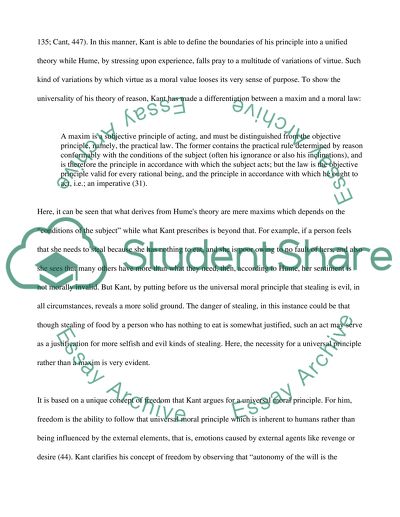Cite this document
(“Ethics (David Hume and Kant) Essay Example | Topics and Well Written Essays - 1750 words”, n.d.)
Retrieved de https://studentshare.org/philosophy/1390660-ethics-david-hume-and-kant
Retrieved de https://studentshare.org/philosophy/1390660-ethics-david-hume-and-kant
(Ethics (David Hume and Kant) Essay Example | Topics and Well Written Essays - 1750 Words)
https://studentshare.org/philosophy/1390660-ethics-david-hume-and-kant.
https://studentshare.org/philosophy/1390660-ethics-david-hume-and-kant.
“Ethics (David Hume and Kant) Essay Example | Topics and Well Written Essays - 1750 Words”, n.d. https://studentshare.org/philosophy/1390660-ethics-david-hume-and-kant.


